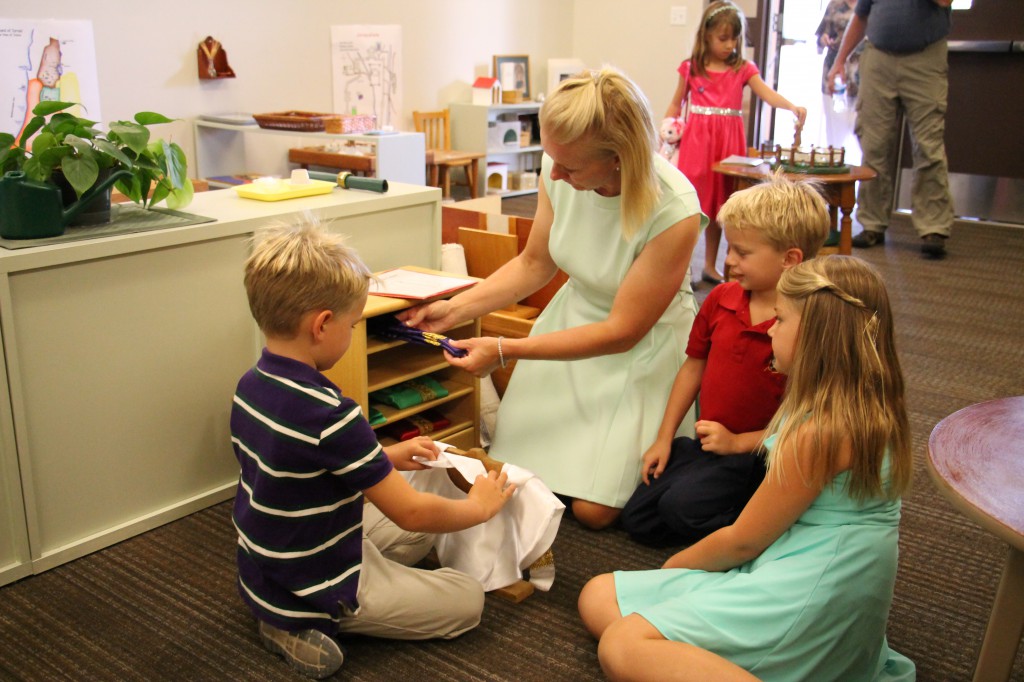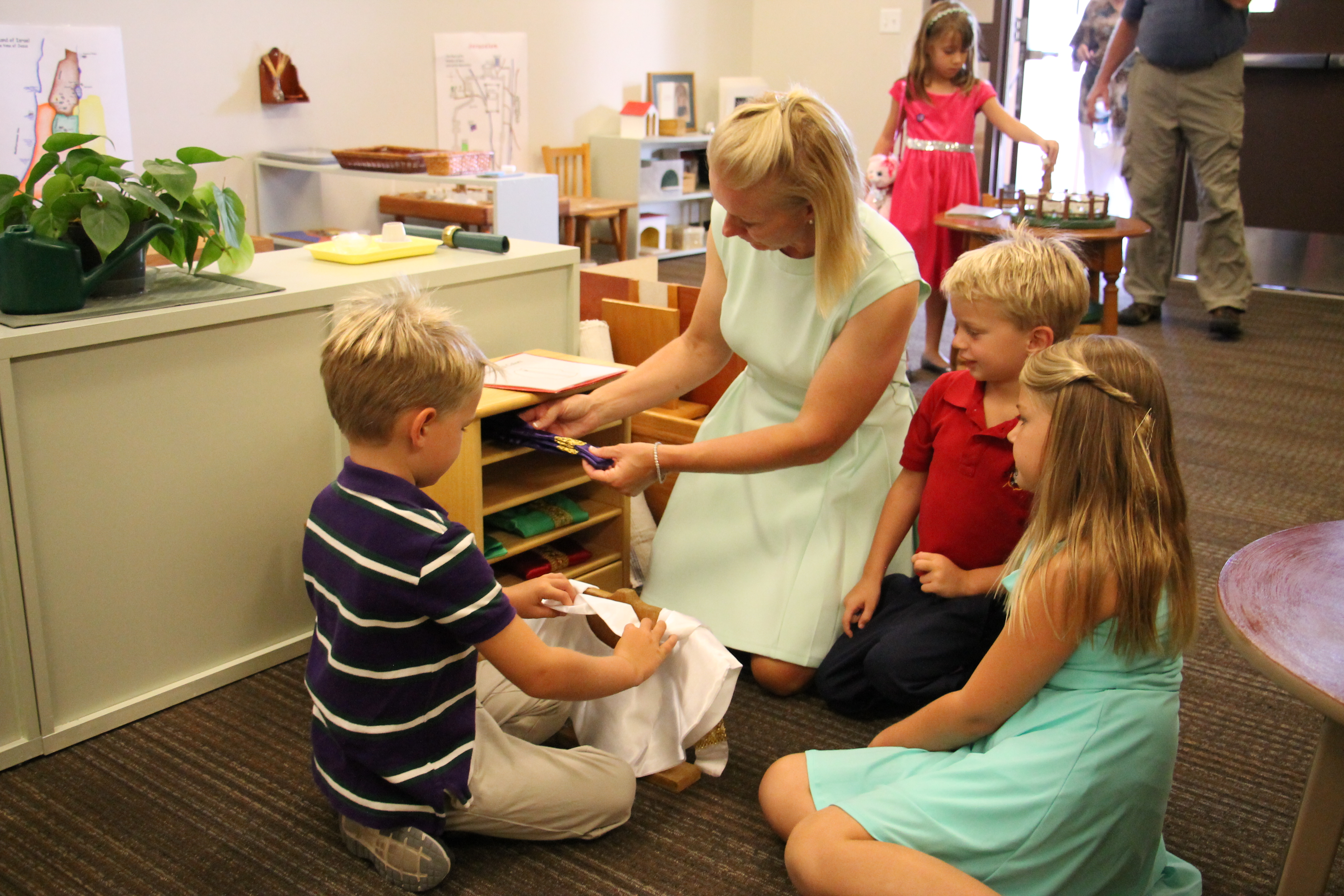
[dropcap type=”4″]D[/dropcap]eep in the heart of parish work is the faith formation of children through religious education programs. Thousands of children throughout the Diocese of Phoenix are engaged in weekly classes structured to pass on the Catholic faith.
It is estimated catechists form nearly 25,000 children each year in the diocese, which doesn’t include youth ministries for older tweens and teens in Edge or Life Teen.
The approach and style of religious education has evolved over the decades, as has the name; Confraternity of Christian Doctrine, CCD, has been replaced by the umbrella term, “faith formation.”
Parishes have the freedom to design and implement programs that impart the truths of the Catholic Church in a way that opens the heart to make room for God, and the ability to see and experience the richness of the faith.
At St. Francis Xavier, the religious education program for children 3 years old through sixth grade is Catechesis of the Good Shepherd.
Melinda “Mindy” Longwell and Claudia Margarita Schmitt, who have a combined experience of more than 50 years in the Montessori-based Catholic formation, are charged with opening bilingual classes in November.
Longwell said the program is coming back to the parish because of its resemblance to Ignatian spirituality.
“We are helping the child enter into their own personal relationship with God and it speaks very much to the Jesuits,” she said. “The Jesuits see that interior relationship. We can’t give that but we can provide an environment for that to happen.”
During an address for the opening of the national office of Catechesis of the Good Shepherd at Our Lady of Perpetual Help Church last month in Scottsdale, Bishop Thomas J. Olmsted said knowledge is not enough for faith to be alive, but children need to be engaged in the works of faith.
Moreover, children need to be shown how to have a personal relationship with God and one way of leading children to Christ is through religious education classes.
“Catechesis does not just impart a body of knowledge or a code of do’s and don’ts, Bishop Olmsted said. “Instead, catechesis helps us to see how attractive the love of Christ is; how Jesus engages both our mind and the heart, and draws us to Himself in a dialogue of love.”
Religious education teachers are called “catechist” for good reason. The word has its roots in a Greek word that means, “to sound,” or “echo,” which implies talking and sharing.
So valued is their role, each year the Phoenix Diocese has a commissioning of catechists in parishes known as Catechetical Sunday. This year the blessing is on Sept. 21 and will focus on the theme, “Teaching About God’s Gift of Forgiveness.”
The diocese offers catechist training, support, retreats, professional development and resources through the diocesan office of Parish Leadership Support in the department of Family Catechesis.
Director Angela Gaetano hopes catechists can find meaning in their work in the parable of the sower.
“In many ways, that is the catechist’s job — to sow seeds and trust that the Lord will bring about the fruit,” she said.
As a channel of Christian love, a catechist’s greatest role is that of a witness.
In his apostolic exhortation Evangelii Nuntiandi, Pope Paul VI said, “Modern man listens more willingly to witnesses than to teachers, and if he does listen to teachers, it is because they are witnesses.”
Methods differ, but the goal remains the same; teaching children to know, love and serve God.
Pam Myskowski at Our Lady of Mount Carmel in Tempe has coordinated a variety of techniques in her family-centered religious education programs since 1991, including CGS and an online program called mycatholicfaithdelivered.com.
“It’s important to offer a variety of programming. Catechists have to be pastoral and meet the needs of the families,” she said. “If we can partner with the families, then we can grow the kingdom of God.”
Older children at St. Mary’s Church in Kingman also have the portability of a new online class coupled with opportunities to foster personal relationships.
Volunteer coordinator Patti Walrod said she likes the flexibility of catechismclass.com for her students 12-17, but cherishes their meetings.
“I love when they ask me questions. Their questions have led me to a much deeper understanding of my own faith,” she said. “It leads me to find the answers.”






